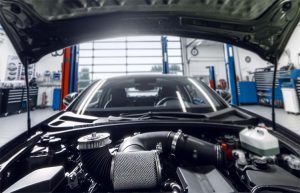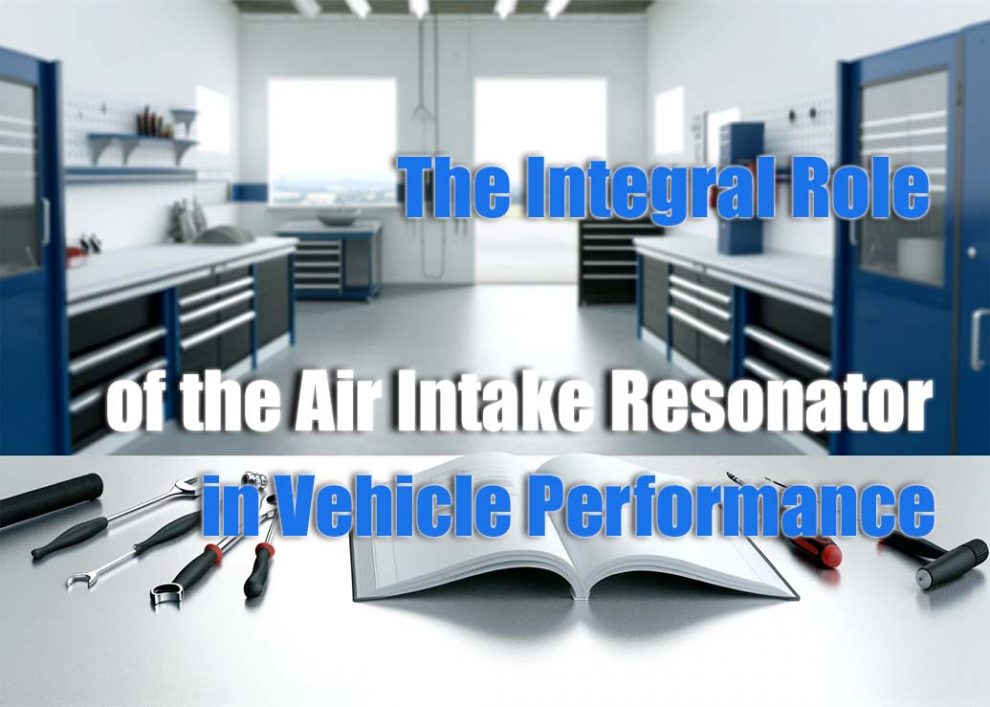In the complex and finely tuned machinery of a vehicle, every component, no matter how small, plays a significant role in ensuring optimal performance, efficiency, and the overall driving experience. Among these components, the air intake resonator is a crucial yet often overlooked part of a vehicle’s engine system. It is specifically designed to refine the process of air induction into the engine, thus balancing the intricate dance between power output, fuel efficiency, and noise reduction. When the air intake resonator is broken, the vehicle can experience a myriad of issues ranging from increased noise levels to decreased engine performance, underscoring the importance of this component in the smooth operation of a vehicle.
Understanding the Air Intake Resonator
The air intake resonator, a key player in the vehicle’s air intake system, functions as a mediator for the air entering the engine. By harmonizing the airflow, it ensures that the engine receives a steady, uninterrupted stream of air, crucial for the combustion process that powers the vehicle. Additionally, it plays a significant role in noise dampening, acting as a buffer against the harsh sounds generated by the high-speed air and engine vibrations. This dual functionality not only enhances the driving experience by ensuring a quieter ride but also contributes to the overall performance and efficiency of the engine. When faced with an air intake resonator broken, drivers may notice a distinct change in their vehicle’s acoustics and performance, signaling the need for immediate attention.
Signs of an Air Intake Resonator Failure
Recognizing the signs of a malfunctioning air intake resonator is key to maintaining your vehicle’s performance and comfort. Indicators that suggest a potential issue include:
- Unusual engine noises, such as growling or roaring, which were previously muted
- A noticeable decrease in fuel efficiency, as the engine struggles to maintain optimal air-fuel ratios
- Reduced engine performance, especially during acceleration, due to disrupted air flow
- The engine may run rougher than usual, indicating inconsistent air delivery to the combustion chamber
These symptoms highlight the critical nature of the air intake resonator’s function and the potential consequences of neglecting issues related to it.
The Mechanics Behind the Air Intake Resonator
 At its core, the air intake resonator uses principles of acoustics to enhance the vehicle’s engine performance. It is designed to target and neutralize specific frequencies of noise generated by the intake of air, thus reducing the overall sound level emitted by the vehicle. Beyond noise control, the resonator optimizes airflow to the engine, mitigating turbulence and ensuring a smooth supply of air. This smooth airflow is crucial for maintaining efficient combustion within the engine, directly impacting the vehicle’s power output and fuel consumption. Therefore, an air intake resonator broken can lead to diminished performance, highlighting the resonator’s role in sustaining engine efficiency.
At its core, the air intake resonator uses principles of acoustics to enhance the vehicle’s engine performance. It is designed to target and neutralize specific frequencies of noise generated by the intake of air, thus reducing the overall sound level emitted by the vehicle. Beyond noise control, the resonator optimizes airflow to the engine, mitigating turbulence and ensuring a smooth supply of air. This smooth airflow is crucial for maintaining efficient combustion within the engine, directly impacting the vehicle’s power output and fuel consumption. Therefore, an air intake resonator broken can lead to diminished performance, highlighting the resonator’s role in sustaining engine efficiency.
Different Types of Air Intake Resonators
Air intake resonators are not a one-size-fits-all component; they vary in design and function to suit different vehicle needs and performance requirements. The main types include:
- Helmholtz Resonator: This type is most commonly used for its effectiveness in dampening low-frequency sounds without significantly affecting airflow.
- Quarter-wave Resonator: Tailored to cancel out a broader range of frequencies, this resonator is slightly more complex in design and can improve noise reduction across different engine speeds.
- Tuned Resonator: The most sophisticated option, tuned resonators are designed to target and neutralize very specific frequencies of engine noise, offering the highest level of noise control and performance enhancement.
Each type of resonator offers unique benefits, making the choice of resonator dependent on the specific performance and noise reduction goals of the vehicle. When the air intake resonator is broken, understanding the type installed in your vehicle can guide you in selecting the appropriate replacement or repair strategy.
Dealing with a Broken Air Intake Resonator
Addressing an air intake resonator broken promptly is crucial for maintaining your vehicle’s performance and comfort. The repair or replacement process involves diagnosing the issue, removing the damaged resonator, and installing a new one that is compatible with your vehicle’s model. This ensures that airflow and noise levels are restored to optimal levels. Regular maintenance checks can help identify potential resonator issues before they escalate, allowing for timely interventions and repairs.
Enhancements and Modifications
For vehicle enthusiasts looking to enhance their engine’s performance or acoustic profile, modifications to the air intake system, including the resonator, can offer significant benefits. These modifications can optimize airflow, improve fuel efficiency, and tailor the engine’s sound to the driver’s preference. It’s important to consider the specific needs and capabilities of your vehicle when exploring modifications to ensure compatibility and to achieve the desired performance outcomes. For those specifically interested in optimizing their vehicle’s performance, like with the Jeep Cherokee, an upgrade worth considering is the Best Cold Air Intake for Jeep Cherokee.
Conclusion
The air intake resonator is a vital component in the complex system of a vehicle’s engine, playing a crucial role in ensuring efficient performance and a quiet ride for passengers. When the air intake resonator is compromised or broken, the vehicle can suffer from increased noise levels, reduced efficiency, and a noticeable drop in performance. Addressing such issues not only restores the vehicle’s original quietness and efficiency but also prevents further damage to the engine system. Given its critical role, understanding the signs of wear or failure and seeking timely repairs or adjustments is essential. Whether it’s through regular maintenance checks, upgrades to more efficient models, or modifications for enhanced performance, maintaining the integrity of the air intake resonator is key to ensuring the longevity and optimal performance of your vehicle.


Add Comment